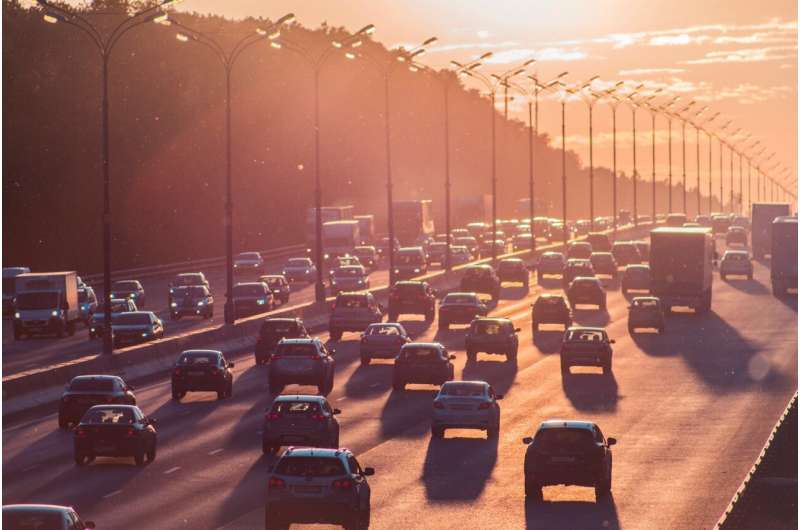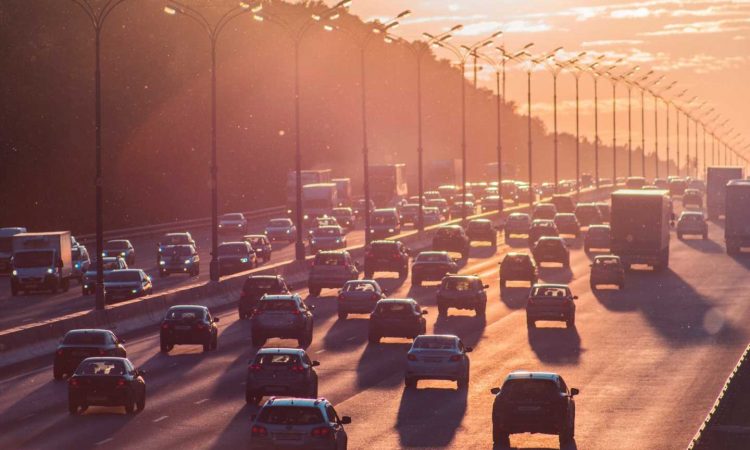
A randomized crossover trial found that the inhalation of traffic-related air pollution while in a car with unfiltered air was associated with a 4.5 mm Hg increase in blood pressure. This change in blood pressure occurred rapidly, peaked within 60 minutes of exposure, and persisted over 24 hours. The findings are published in Annals of Internal Medicine.
Traffic-related air pollution (TRAP) exposure is recognized as a risk factor for cardiovascular disease and other health effects. Work commute times in the U.S. are longer, averaging 27 minutes in 2019. Exposure to TRAP has been associated with increased cardiovascular risk in observational studies. TRAP may include ultrafine particles; black carbon; oxides of nitrogen; carbon monoxide (CO); carbon dioxide (CO2); and other particulate matter.
In this study from the University of Washington, 16 persons aged 22 to 45 years of age were driven through traffic in Seattle, Washington for three days between 2014 and 2016 to determine—by using particle filtration or sham filters—the effect of on-roadway pollutant exposure on blood pressure.
For two days, on-road air was entrained into the vehicle. On another day, the vehicle was equipped with high efficiency particulate air (HEPA) filtration. Blood pressure was monitored up to 24 hours before, during, and after the drive.
The authors found that—in the participants with complete data—drives in vehicles with unfiltered TRAP resulted in significant net increases in blood pressure compared with drives with in-vehicle filtration. According to the authors, these findings suggest that not only does TRAP raise blood pressure, but also that the effects of air pollution on blood pressure may be reduced with effective cabin air filtration.
More information:
Blood Pressure Effect of Traffic-Related Air Pollution, Annals of Internal Medicine (2023). DOI: 10.7326/M23-1309
Journal information:
Annals of Internal Medicine
Source: Read Full Article
